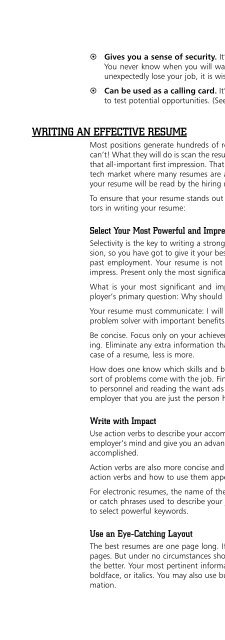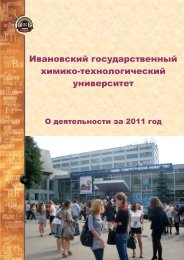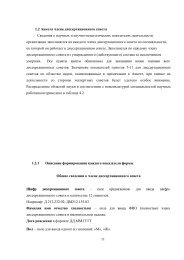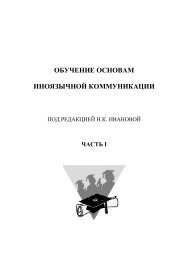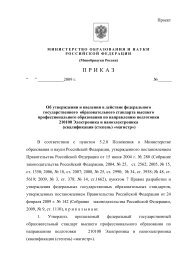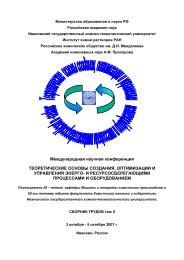worksheet
worksheet
worksheet
Create successful ePaper yourself
Turn your PDF publications into a flip-book with our unique Google optimized e-Paper software.
Introduction ➢ xv<br />
Gives you a sense of security. It’s a good idea to always have an updated resume on hand.<br />
You never know when you will want to seek a better job or just a change. Also, in case you<br />
unexpectedly lose your job, it is wise to have your resume updated and ready.<br />
Can be used as a calling card. It’s there when you want to conduct informational interviews<br />
to test potential opportunities. (See Chapter 14, Networking.)<br />
WRITING AN EFFECTIVE RESUME<br />
Most positions generate hundreds of resume responses. How can employers read them all? They<br />
can’t! What they will do is scan the resumes. You sometimes have less than fifteen seconds to make<br />
that all-important first impression. That is why your resume has to stand out! Even in today’s hightech<br />
market where many resumes are actually evaluated by a computer, when ultimately chosen,<br />
your resume will be read by the hiring manager and it must be written to impress.<br />
To ensure that your resume stands out in the crowd, concentrate on the three most essential factors<br />
in writing your resume:<br />
Select Your Most Powerful and Impressive Information<br />
Selectivity is the key to writing a strong resume. You have only one chance to make a first impression,<br />
so you have got to give it your best shot. Don’t bore the reader with endless facts about your<br />
past employment. Your resume is not an obituary or biography. It’s an ad. Like an ad, write to<br />
impress. Present only the most significant information about your professional experience.<br />
What is your most significant and impressive information? What information answers the employer’s<br />
primary question: Why should I hire you?<br />
Your resume must communicate: I will be an asset to your organization. It should reveal you as a<br />
problem solver with important benefits to offer.<br />
Be concise. Focus only on your achievements and skills that are required for the job you are seeking.<br />
Eliminate any extra information that detracts from emphasizing what the job requires. In the<br />
case of a resume, less is more.<br />
How does one know which skills and benefits to highlight and select? Do research. Find out what<br />
sort of problems come with the job. Find out the qualifications the employer is looking for. Talking<br />
to personnel and reading the want ads carefully will give you a sufficient idea. Demonstrate to the<br />
employer that you are just the person he or she is looking for.<br />
Write with Impact<br />
Use action verbs to describe your accomplishments. Action verbs conjure up a positive image in the<br />
employer’s mind and give you an advantage. Action verbs describe you as a person who gets things<br />
accomplished.<br />
Action verbs are also more concise and make your resume more readable. A detailed discussion of<br />
action verbs and how to use them appears in Chapters 6 and 7.<br />
For electronic resumes, the name of the game is “keywords.” These are usually nouns, buzzwords,<br />
or catch phrases used to describe your job and level of proficiency. Chapter 13 will show you how<br />
to select powerful keywords.<br />
Use an Eye-Catching Layout<br />
The best resumes are one page long. If you have many years of experience, you may require two<br />
pages. But under no circumstances should a resume be longer than two pages. The more concise<br />
the better. Your most pertinent information should stand out with either all caps (capital letters),<br />
boldface, or italics. You may also use bullets ( ) to draw the reader’s attention to significant information.


